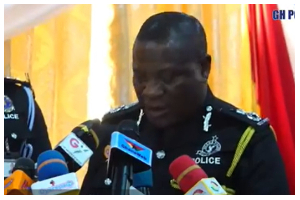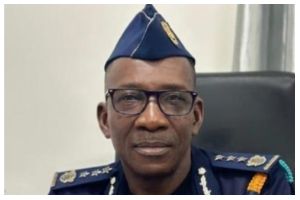By Kwame Okoampa-Ahoofe, Jr., Ph.D.
Ordinarily, I would not be commenting on this patently pedestrian aspect of Ghanaian politics; this is what New Yorkers call “Monday Morning Quarterbacking.” The Quarterback is, of course, the most cardinal player in the American game of Football, which is to be readily distinguished from Association Football or, more appropriately, Soccer. The latter never, really, caught on with the American public, which is far more into Baseball, Basketball and, of course, Football.
In recent years, though, perhaps sparked by this mega-nation’s renewed interest in World-Cup tourneys, in an increasingly global village with a fairly homogeneous meta-culture, at least where cutting-edge technology is concerned, there has been rekindled a renewed interest in soccer; the latter is, however, more globally oriented than it is local. Perhaps the it has something to do with the rapid “de-Europeanization” of the proverbial American mainstream.
One thing is also pleasantly becoming limpid; and it is the rapid democratization of the African continent, and other Third World polities as well. For my part, it is Ghanaian democratic culture that has become the going concern and one to eagerly look out for as the preeminent barometer of the primeval continent’s geopolitical destiny. Admittedly, like even here in the United States, Ghanaian democracy is not perfect. No humanly fashioned institution is, least of all that of a country whose democratic political fare is just a teenager.
Still, what makes Fourth-Republican Ghanaian democracy quite fascinating is its auspicious elevation into the hitherto rarefied realm of media and intellectual analysis. In Ghana, it is the former that is the more dominant; but the latter is fast creeping in on its counterpart. And the synergy of the two is to be celebrated. For not long ago, Ghanaians were besieged with a primitively regressive “culture of silence” which counseled tactical fatuity as a mode of survival and existential longevity. Indeed, so nauseatingly rank did the latter rule the proverbial roost that even the swashbuckling strongman who invented the same felt morbidly cloyed with it and began to plead with his captives to come out of their shell-shocked cocoons, even while also sneeringly, cynically and paradoxically claiming that the deliberative politics of democracy was one that was too much of a drag for his dyspeptic dictatorial temperament.
And so it is absolutely nothing short of the ineffably refreshing that media players like Mr. Ben Ephson, the editor-publisher of a newspaper called the Daily Dispatch, should also double and treble up as a pollster and political analyst. In wearing these three hats, it goes without saying that Mr. Ephson is a pioneer of remarkable significance. But whether he is able to creditably acquit himself while wearing all three hats is a legitimate question for discussion in a wholly separate forum altogether.
Personally, I don’t think the man who prefers to label himself as a “senior journalist,” or some such quaint designation, has been as successful as a political analyst as he has been an editor or even a pollster. And regarding the latter observation, I am, of course, alluding to the outcome of the latest Chereponi poll, a bye-election occasioned by the untimely passing of Ms. Doris Seidu, a New Patriotic Party Member of Parliament (NPP-MP) recently. In last December’s poll, Ms. Seidu had bagged (or is it boxed?) 52-percent of the total number of votes cast, against the nearly 44-percent clinched by her main opponent, Mr. Seidu Issah Abah, of the National Democratic Congress (NDC).
In the foregoing bye-election, held at the end of September, however, the NDC decided to field a wholly new candidate, a 36-year-old teacher by the name of Mr. Samuel Jabanyite, and a 2000 National Reform Party (NRP) candidate, while the still-grieving NPP fielded Mr. Abukari Gariba.
My beef with Mr. Ephson regards his rather lame assertion that the NDC would have lost the Chereponi bye-election had the ruling party decided to stick with the losing Mr. Seidu Issah Abah (See “Ben Ephson: NDC Would Have Lost in Chereponi If…” Myjoyonline.com 9/30/09). Maybe somebody needs to inform the Daily Dispatch political analyst that the critical game of electoral strategizing is not about any “ifs” and “buts” but squarely about kicking one’s opponent so hard in the teeth and groin that the latter topples head-over-heels; this is precisely what the “Nkawkaw-minded” NPP failed to do this time around, besides the clearly obvious fact of the Northern Region, in general, not being an NPP stronghold, as was more than amply demonstrated by the two-term vice-presidency of Alhaji Aliu Mahama. One thing was also clear about the Chereponi bye-election. It appears that the population of registered Christian voters in the district slightly outweighs that of Muslim voters, simply by gauging from the first names of the winners, both past and present. What this means is that like the apparently more savvy NDC, at least in the context of Chereponi, the NPP ought to have quickly done the very elementary arithmetic and fielded a winsome Christian candidate. For it is quite likely that in putting forth the candidacy of Mr. Abukari Gariba, the NPP power-brokers were facilely and all-too-unwisely playing on stereotypes.
In any case, NDC deputy scribe Baba Jamal got it half-right when he observed as follows: “Looking at the figures and the way they came [in the last parliamentary election]… we set ourselves going [in] to correct those things that went wrong.” Still, on the equally critical question of Akyem-Akwatia, over whose epic loss he appears to be still reeling, Baba Jamal is dead wrong in his following assertion: “I think that Chereponi has proved us right that any seat that the NPP won by 3000 [votes] or less, that seat does not belong to them.” Baba Jamal had better be sobered into humbly accepting the facts of “realpolitik,” which is that no victory is too narrow to be discounted as unconvincing or pooh-poohed.
*Kwame Okoampa-Ahoofe, Jr., Ph.D., is Associate Professor of English, Journalism and Creative Writing at Nassau Community College of the State University of New York, Garden City. He is a Governing Board Member of the Accra-based pro-democracy think-tank the Danquah Institute (DI), and the author of 20 books, including “Sororoscopes” (iUniverse.com). E-mail: okoampaahoofe@aol.com. ###
Opinions of Tuesday, 6 October 2009
Columnist: Okoampa-Ahoofe, Kwame
Ben Ephson’s Analytical Non-Sequitur
Entertainment













